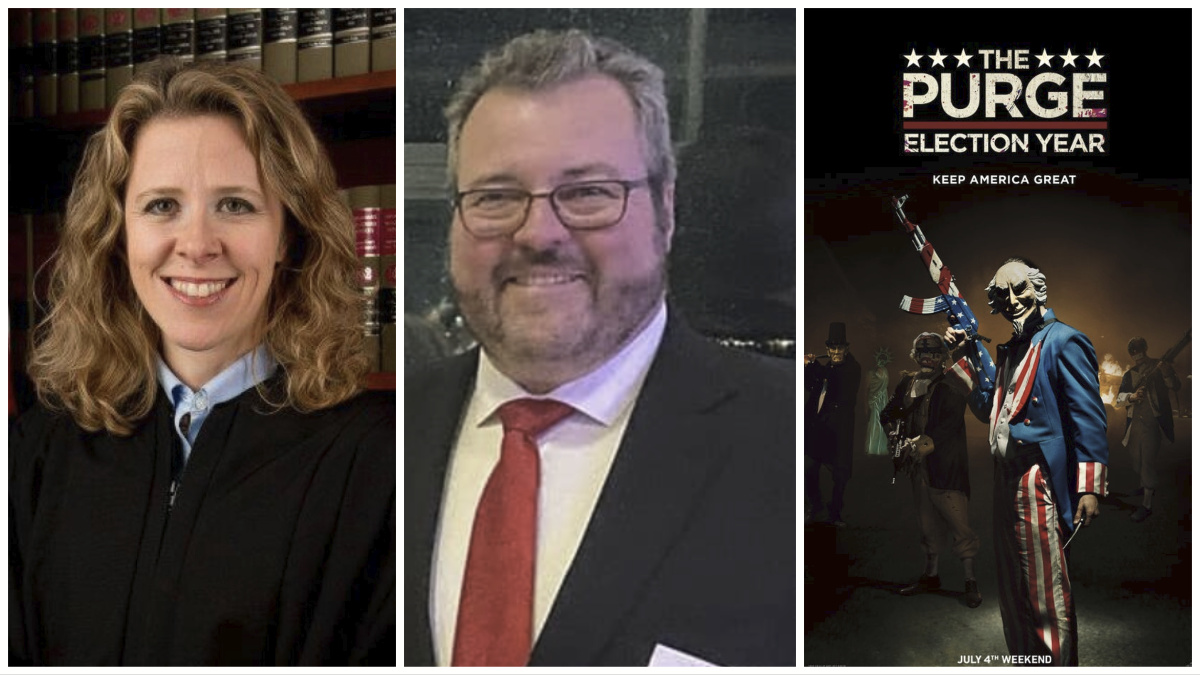This is part 2 in a multi-part series exploring transgender treatments in Wisconsin hospitals.
Part 2: The research is far from settled.
Hospitals and medical professionals in Wisconsin and elsewhere who perform gender surgeries (such as mastectomies) and hormonal treatments on juveniles often justify the treatments by arguing that they prevent harm (suicides, depression) and are completely reversible.
“Children’s Wisconsin is committed to improving the lives of all children and youth in any facet of their health and well-being,” the “Gender Health Clinic” at Children’s Hospital in Wisconsin says on its website, using typical rhetoric. “That is why we recognize the need for a health clinic devoted to children and youth who may have questions of any kind relating to gender identity.”
Not so fast. Could the actions be causing irreversible harm?
In part 1, we reported that more than 260 juveniles received puberty blockers or hormone therapy in recent years from two major Wisconsin hospitals, and up to 15 juveniles underwent breast surgeries every year – in most cases mastectomies – because of “gender dysphoria.”
Yet, a growing body of research is leading European countries to toughen guidelines, even as many on the left in the United States often demand no dissent, and people who want to consider the science or criticize transgender treatments on juveniles are threatened with cancellation.
‘A False Narrative’
A study published by the Journal of Sex and Marital Therapy in 2023 questioned the seminal study that started it all; the researchers found that two Dutch studies that “formed the foundation and the best available evidence for the practice of youth medical gender transition” were “methodologically flawed and should have never been used in medical settings as justification to scale this ‘innovative clinical practice.'”
“A false narrative has taken root,” the study found. “It is that ‘gender-affirming’ medical and surgical interventions for youth are as benign as aspirin, as well-studied as penicillin and statins, and as essential to survival as insulin for childhood diabetes—and that the vigorous scientific debate currently underway is merely ‘science denialism’ motivated by ignorance, religious zeal, and transphobia.”
The researchers found: “This highly politicized and fallacious narrative, crafted and promoted by clinician-advocates, has failed to withstand scientific scrutiny internationally, with public health authorities in Sweden, Finland, and most recently England doing a U-turn on pediatric gender transitions in the last 24 months.”
However, in the United States, “medical organizations so far have chosen to use their eminence to shield the practice of pediatric ‘gender affirmation’ from scrutiny,” the authors wrote.
Despite the all-in push for such transgender treatments by the Biden administration, there is also a growing push to ban transgender surgeries and treatments for youths due to risks associated with these procedures. Gender dysphoria is a complex issue that requires careful consideration and treatment.
Vanderbilt University Medical Center agreed to suspend surgery for minors in 2022 after such concerns were raised.
Last year, Convention of States Action, along with the Trafalgar Group, released data that showed that “78.7 percent of voters believe underage minors should be required to wait until they are adults to legally use puberty blockers and undergo permanent sex-change procedures.”
According to floridahealth.gov, a study published in the International Review of Psychiatry states that 80% of those seeking clinical care will lose their desire to identify with the non-birth sex.
In November 2022, the New York Times published an article, “They Paused Puberty, but Is There a Cost?”
The article reported that “concerns are growing among some medical professionals about the consequences of the drugs.”
According to the Times, the practice emerged in the Netherlands 30 years ago. However, the Times found that there was “little documentation of outcomes and no government approval of the drugs for that use, including by the U.S. Food and Drug Administration.”
“But there is emerging evidence of potential harm from using blockers, according to reviews of scientific papers and interviews with more than 50 doctors and academic experts around the world,” the newspaper reported.
Among the effects: According to the Times, two studies found that bone density loss is not fully reversible.
Sweden, Finland, and England have placed limits on their use, according to The Times, whereas, in the United States, the debate often fractures along political lines.
The Times reported that one study indicated “the United States had produced no data on the impact or safety of blockers, particularly among transgender patients under 12.”
As American political debate often stalls reasonable discussion over the effects of the treatments, some European countries are toughening guidelines for minors. The Finnish Health Authority issued new guidelines that found “psychotherapy, rather than puberty blockers and cross-sex hormones” should be the “first-line” treatment for youth experiencing gender dysphoria because “systematic evidence review” found “the body of evidence for pediatric transition inconclusive,” according to the Society for Evidence Based Gender Medicine.
The new guidelines were based on research, including a Finnish study that found that “medical gender reassignment is not enough to improve functioning and relieve psychiatric comorbidities among adolescents with gender dysphoria.”
In 2020, a prominent Dutch researcher wrote an article for the American Academy of Pediatrics and found, “systematic studies on the rate of adolescents who discontinue their transitions after they have started affirming hormones or surgeries with lasting effects are lacking at present.”
Unsettled Science
In 2021, a group of researchers published a study on Lancet called, “Puberty blockers for gender dysphoria: the science is far from settled.”
The article traces the argument that transgender treatment prevents suicide to a 2011 study but says that the population studied “markedly differs from the population today, which is characterized by post-pubescent young people reporting a trans identity for the first time, often in the context of significant mental health problems.” The original study lacked a control group making it unclear how much any improvements were due to the treatments.
Furthermore, the study reported that improvements in mental health, like depression, were small and “have to be carefully weighed against the risks of puberty blockers to bone health and fertility, and the uncertainty of the long-term health effects of interrupting puberty,” that article says.
“There is growing acknowledgment worldwide that the practice of providing gender-affirming care for youth is far from settled science,” the authors wrote.
A “systematic review by UK’s National Institute for Health and Care Excellence found that in youth with gender dysphoria, there was ‘little change with GnRH analogues from baseline to follow-up’ in gender dysphoria, mental health, body image, and psychosocial impact,” the authors wrote. “The study concluded that the reported psychological improvements are ‘either of questionable clinical value, or the studies themselves are not reliable and changes could be due to confounding, bias or chance.’”
Read this article about a transgender woman’s regret of having the surgery at 19.
“Surgery unshackled me from my body’s urges, but the destruction of my gonads introduced a different type of bondage. From the day of my surgery, I became a medical patient and will remain one for the rest of my life. I must choose between the risks of taking exogenous estrogen, which includes venous thromboembolism and stroke, or the risks of taking nothing, which includes degeneration of bone health. In either case, my risk of dementia is higher, a side effect of eschewing testosterone.”
Walt Heyer, Author of “Trans Life Survivors,” tells the stories of three teens who transitioned at age 18 or 19 and who regretted it soon after.
The research of John Money formed the underpinnings for gender identity theory when, in the 1960s, he performed experiments on two twins, encouraging one of the boys, whose genitals were damaged in a failed circumcision, to transition to a female. The twin was not told he was born biologically male.
“During the twin’s psychiatric visits with Money, and as part of his research, Reimer and his twin brother were directed to inspect one another’s genitals and engage in behavior resembling sexual intercourse,” according to an article published by Arizona State University. The twin later insisted he still felt like a boy despite “receiving female hormones, wearing dresses, and having his interests directed toward typically female norms.” He said the transition was a failure even though Money presented otherwise.
When he died in 2006, The New York Times, which wrote that Money came up with the term “gender identity,” said he “helped found the field of sexual identity studies.”
Table of Contents






















